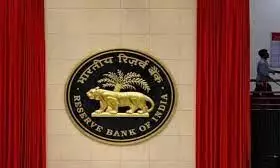
COVID curbs exert pressure on RBI to check commodity price rise
text_fieldsNew Delhi: The second COVID wave and subsequent restriction are said to have left the RBI with little option to curb the anticipated inflation. The RBI has been maintaining the policy rate unchanged to keep the inflation balanced for the last one year while the economy has been in the recovery mode from the crisis induced by the first COVID wave.
The prices of essential commodities are at the high risk of rise since the localised lockdowns to arrest the COVID spread have disrupted frequent supply chain, which in turn increased the possibility of prices rise amid short supply of goods.
The RBI's attempt to lower the interest rates leading to the recent depreciation of the rupee has further aggravated the situation, boosting the local cost of imported oil and other raw materials for manufacturing.
For the time being, the central bank's six-member interest rate panel has pledged to keep inflation rates low to support the economic recovery. It has also unanimously decided to keep an eye on bond yields as the bond markets demand higher premiums to hold the sovereign's debt.
"Given the RBI has a formal inflation target, the answer is straight forward: between yield management and inflation, keeping a lid over inflation is first and foremost," said Amol Agrawal, assistant professor of economics and public policy in Ahmedabad University.
In this prevailed situation, the RBI has left with one option that is to keep a lid over inflation that is first and foremost, the Bloomberg quoted Amol Agrawal, assistant professor of economics and public policy at Ahmedabad University.
According to him, the second wave could lead to rising in supply-side inflation with the outlook rather uncertain.
Earlier this month, RBI had announced to buy up to 1 trillion rupees ($14 billion) of bonds for the April-June quarter, to keep the borrowing costs low and formalize the quantitative easing program to relieve investors.
"One of the key benefits of a bond market is to impose fiscal discipline on governments, by forcing them to pay higher interest rates when government borrowing increases," Rajeswari Sengupta, assistant professor at the Indira Gandhi Institute of Development Research in Mumbai, wrote in a recent column. "Persistent intervention by the RBI would disrupt this process, increasing the risk that large fiscal deficits will persist."
Meanwhile, economists Ila Patnaik and Radhika Pandey at the National Institute of Public Finance and Policy in New Delhi argue that even though the government and businesses are better prepared than last year to handle lockdowns, the preparations are likely insufficient for the current surge in cases.
"It appears that no one expected a second wave of this magnitude," Ms Patnaik and Ms Pandey wrote. "These supply disruptions could in themselves cause higher prices."
Ms Sengupta at IGIDR said that if inflationary pressures persist, the RBI's problems could get tougher.
"If it fails to fulfil its commitment and prematurely ends the liquidity injection, it could lose the confidence of the bond market for a long period of time," she said. "If, on the other hand, it goes ahead with its secondary bond-buying plan despite rising inflation, its credibility as an inflation-targeting central bank will be called into question."
(With agency inputs)























